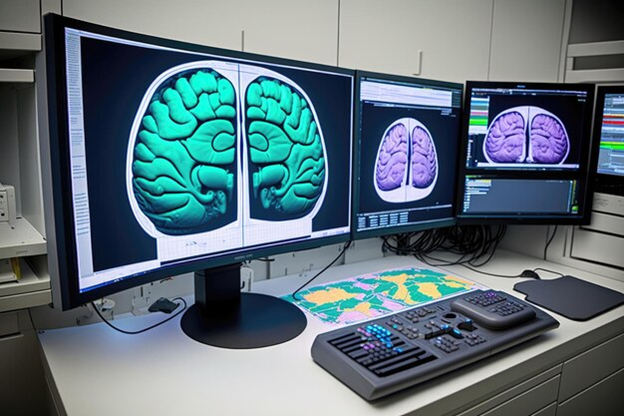Electrophysiology Technician
This program is based on the branch of physiology that deals with the electrical properties of biological cells and tissues. Our diploma courses in electrophysiology covers a range of topics including the principles of electrical activity in living organisms, instrumentation, data analysis, and practical laboratory skills. In addition we provide hands-on training, practical sessions, and exposure to real-world scenarios; those are crucial components of such a program.

Diploma in Electrophysiology Technician
Fundamentals of Electrophysiology:
Understanding the basic principles of electricity,
ion channels,
membrane potentials, and action potentials.
History and Development: Exploring the historical progression and significant milestones in electrophysiological research.
NEUPHS 100: Neurophysiology
- Understanding the electrical properties of neurons,
- Synaptic transmission, and neural networks.
CARELEC 100: Cardiac Electrophysiology:
- Studying the electrical properties of the heart,
- Cardiac action potentials, arrhythmias, and relevant clinical implications.
MUSPHS 100: Muscle Physiology
- Exploring muscle cell excitation,
Contraction, and electrical properties.
PATTEC 100: Patch Clamp Technique
- Detailed study of the patch clamp method for measuring ion currents across cellular membranes.
EEG 100: Electroencephalography
- Understanding EEG principles,
- Signal acquisition, and its applications in neuroscience and clinical settings.
EMG 100: Electromyography
- Exploring EMG principles, electrode placement,
- Signal interpretation, and its applications in assessing muscle activity.
ECG 100: Electrocardiography (ECG)
- Studying ECG principles,
- Interpretation of cardiac rhythms, and clinical significance.
DAA 100: Data Acquisition and Analysis
- Learning about recording equipment,
- Software, and data analysis techniques used in electrophysiological experiments.
EDES 100: Experimental Design
- Understanding how to design experiments,
- Choose appropriate methodologies,
- Troubleshoot common issues in data acquisition.
CLIA 100: Clinical Applications
- Exploring how electrophysiological techniques are used in diagnosing
- Treating neurological disorders,
- Cardiac conditions, and muscular dysfunctions.
RESA 100: Research Applications
- Understanding how electrophysiology contributes to scientific research in neuroscience,
- Pharmacology, cardiology, and other related fields.
ADVT 100: Advanced Topics:
- Exploring emerging trends, new technologies,
- And cutting-edge research in electrophysiology.
LAB 100: Laboratory Sessions:
- Practical training in using electrophysiological equipment,
- Conducting experiments, and analyzing data.
CLIC 100: Clinical Observations (optional)
- Opportunities to observe and assist in clinical settings where electrophysiological techniques are employed for diagnostics or treatments.
NEUPRO 100: Research Project
- Undertaking a research project applying electrophysiological techniques under the guidance of a mentor or supervisor.
NEUINT 100: Internship
- Gaining hands-on experience by working in a laboratory, clinical setting, or research institution specializing in electrophysiology.
NEUE 100: Ethical Considerations:
- Understanding ethical guidelines in conducting research
- Or using electrophysiological techniques in clinical practice.
Students have to contact the school administration if they want to take extra credits or transfer credits to pursue the Diploma Certificate or Associate of Applied Science (A.A.S.) Degree in their field of interest. Students will select required number courses in each of the areas listed to meet general education requirements graduation for the A.A.S. Some of these courses can be transferred directly from and to the university system and may be substituted for recommended courses on the outline. Students should speak with an advisor before doing so these selective courses are required for all students.
- Selected Communication Course (Choose two for Diploma or three for the Associate)
ENGL 100: Fundamentals of Speech
CPL 100: Career Planning
CPL 101: Communications and Career Strategies
ENGL 101: Composition
ENGL 102: composition
- Selected Mathematics Course (Choose two for Diploma or three for the Associate)
MATH 100:General Math
MATH 101:Intermediate Algebra
MATH 102:College Algebra
- Selected Social Science Course (Choose two for Diploma or four for the Associate)
ECON 105:Leadership
ECON 101:Principles of Microeconomics I
ECON 102:Principles of Macroeconomics II
SOC 101:Introduction to Sociology
PSYC 101: Introduction to Psychology
HIST 101: History
